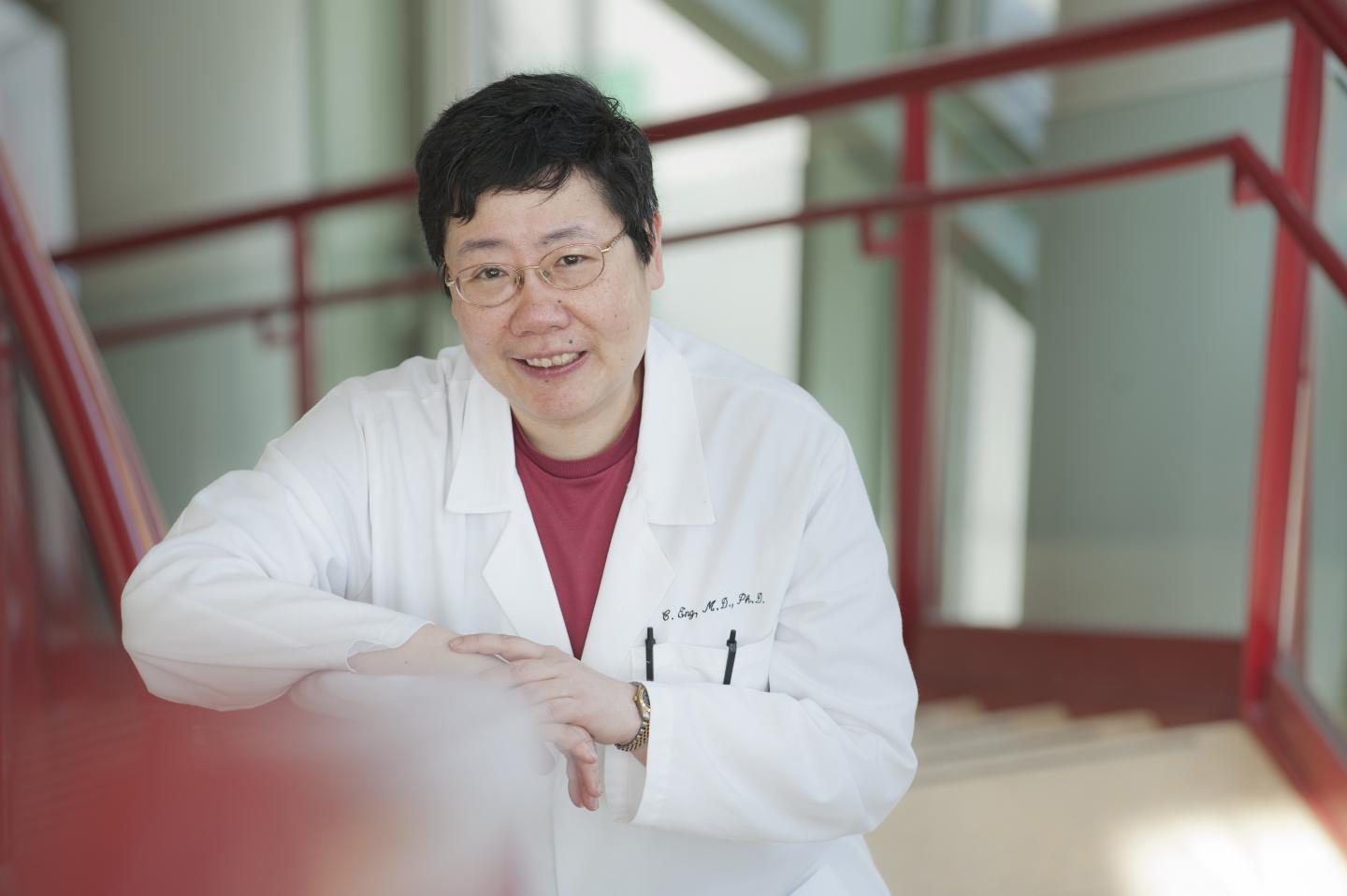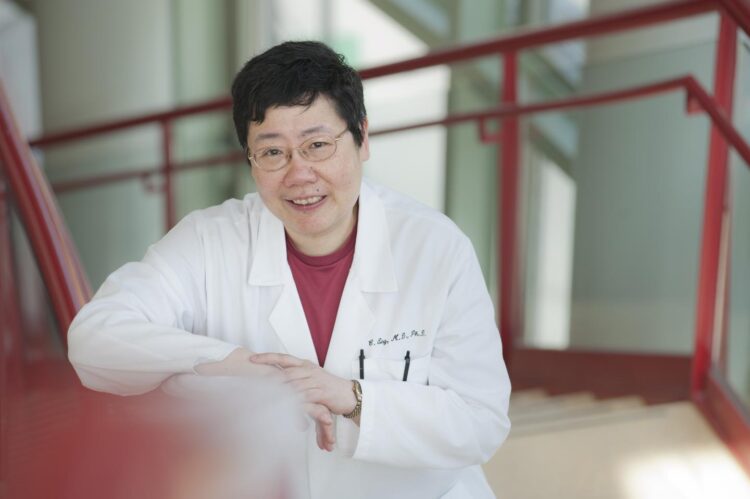New Cleveland Clinic study demonstrates importance of genetics evaluation, genetic testing

Credit: Cleveland Clinic
CLEVELAND – A new Cleveland Clinic study demonstrates the importance of genetics evaluation and genetic testing for children, adolescents and young adults with solid tumor cancers. The study was published today in Nature Communications.
Solid tumors account for half of cancer cases in children, adolescent and young adult (C-AYA) patients. The majority of these cases are assumed to result from germline variants (heritable changes affecting all cells in the body) rather than somatic alterations. However, little is known regarding the spectrum, frequency and implications of these germline variants.
In this study, led by Charis Eng, M.D., Ph.D., Cleveland Clinic’s Genomic Medicine Institute, the researchers conducted the largest-to-date evaluation of germline mutations in C-AYA patients with solid tumors utilizing a combined dataset from Cleveland Clinic and St. Jude Children’s Research Hospital. Of the 1,507 patients analyzed, 12% carried germline pathogenic and/or likely pathogenic variants in known cancer-predisposing (KCPG) genes while an additional 61% had germline pathogenic variants in non-KCPG genes.
“Our findings emphasize the necessity for all C-AYA patients with solid tumors to be sent for genetics evaluation and gene testing,” said Dr. Eng. “Adult guidelines, particularly family history, are typically used to recognize C-AYA patients with possible heritable cancer, but studies have found a family history of cancer in only about 40% of patients with pathogenic and/or likely pathogenic variants.”
The researchers also conducted a drug-target network analysis to determine if the pathogenic and/or likely pathogenic germline variants detected in the dataset were located within genes that could potentially be targeted by drug therapies. Their analysis found that 511 (34%) patients had at least one pathogenic and/or likely pathogenic variant on a gene that is potentially druggable. Notably, they discovered that approximately one-third of these patients had variants that can be targeted by existing FDA-approved drugs.
“Currently, the majority of available targeted therapies are geared to adult patients, leaving few safe and effective treatment options for C-AYA patients,” noted Dr. Eng. “However, we found that a significant number of the germline altered genes in C-AYA solid tumor cancers are targetable by FDA-approved drugs, which presents an opportunity to harness drug repurposing to identify therapeutic options for C-AYA patients.”
Dr. Eng is the inaugural chair of the Genomic Medicine Institute and director of the Center for Personalized Genetic Healthcare. She holds the Sondra J. and Stephen R. Hardis Endowed Chair in Cancer Genomic Medicine.
This work was supported by a VeloSano Pilot Award, belonging to a grant program that provides seed funding for cancer research activities being performed anywhere at the Cleveland Clinic.
###
Media Contact
Alicia Reale
[email protected]
Related Journal Article
http://dx.





